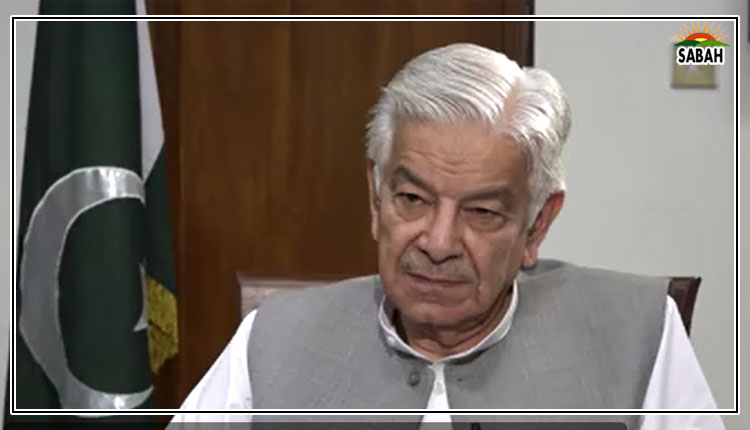How America lost in Afghanistan…Javid Husain
On August 15, 2021, the Afghan Taliban triumphantly rode back into Kabul 20 years after they had been driven out of power by the US and its allies in Afghanistan and the region.
The regime that had been imposed on the people of Afghanistan by the US following its invasion in the aftermath of 9/11 collapsed like a house of cards. By August 30, 2021, the last US troops had left, bringing to an end the longest American war and the sad saga of American military misadventure in Afghanistan.
The ill-planned US war in Afghanistan had caused thousands of casualties of American troops and troops of its allies, besides the loss of about $3 trillion to the American exchequer. In the process, hundreds of thousands of Afghans were killed or displaced. The war also caused enormous material destruction in Afghanistan.
The US misadventure in Afghanistan led to its biggest military debacle since its defeat in Vietnam. It was a sorry tale of American overreach in terms of its goals and objectives, flawed strategic planning that overemphasized the military to the neglect of political means for a successful outcome, abysmal ignorance of Afghan history and culture, and a crude attempt to impose alien cultural values on an extremely conservative society.
There were also inadequate consultations and coordination of policies with Pakistan and Iran, Afghanistans two most important regional neighbours. Above all, the American debacle brought into the limelight the limits of American power in bringing about national transformation in distant and culturally alien countries.
The original aims of the US invasion of Afghanistan in the wake of 9/11, as publicly stated by president Bush in his statement of April 17, 2002, were basically threefold: to defeat and dismantle Al Qaeda, which had launched the 9/11 attacks; to impose a government of Washingtons choice on the Afghan people in place of the Taliban government, which had provided sanctuary to Al Qaeda; and to rebuild Afghanistan with a stable government and as a better place in which to live. The last aim undoubtedly was meant to transform Afghan society in the light of Western cultural and political values.
America achieved considerable success in degrading and defeating Al Qaeda through its invasion of Afghanistan and subsequent military operations. It was also able to replace, with relative ease, the Taliban government with the government of its choice after the Bonn Conference.
The new Afghan government, however, was far from stable as it was tainted with the stigma of having been brought into power through foreign military intervention and lacked broad-based political support in Afghanistan. As it was dominated by elements of the Northern Alliance, it was alienated not only from the Taliban but also from most of the Pashtuns who constituted the largest ethnic community in the country.
Sherard Cowper-Coles, the British ambassador to Afghanistan from 2007 to 2009, recognized in his book Cables from Kabul, published in 2011, that the Bonn settlement that had followed (the Taliban defeat) had been a victors peace from which the vanquished had been excluded; and that the constitution resulting from that settlement could last as long as the West was prepared to stay in Afghanistan to prop up the present disposition.
Apparently, the US-led West, in its quest for total victory in Afghanistan, had not paid the required attention to the disastrous consequences of the Treaty of Versailles, at least as far as Afghanistan was concerned.
It was, therefore, just a matter of time before the Taliban would regroup and pose a serious challenge to the US-imposed political dispensation in Afghanistan. This is precisely what happened. At the grand strategic level, the US invasion of Iraq in 2003 diverted US attention and resources from Afghanistan to another theatre of war, providing the Taliban the opportunity and space to launch the insurgency, which gradually grew in intensity, ultimately leading to Americas retreat from the country.
At the strategic level, the fundamental blunder committed by the US in Afghanistan was its failure, at least initially, to distinguish between Al Qaeda, which was an international terrorist organization, and the Afghan Taliban which despite its retrogressive and obscurantist ideology was and remains an important political party in the Afghan political spectrum. It was much later in January 2015 that the White House press secretary Josh Ernest clarified that it was important to draw a distinction between the Taliban and Al Qaeda and described the former as armed insurgency.
Washington also made the mistake of relying too heavily on the military dimension of its strategy to the neglect of the political dimension. Had it given adequate attention to the political dimension, it would have initiated dialogue with the Taliban much earlier than 2011.
Apparently, the US military stood in the way of a political settlement in Afghanistan during the first decade of the US military occupation. It was only in February 2011 that the then US secretary of state Hillary Clinton, on behalf of the US administration, was able to endorse publicly the diplomatic route for a settlement in Afghanistan in her speech to the Asia Society.
The Taliban resistance to the American military occupation gathered strength also because of Washingtons misguided attempt to transform an extremely conservative and religious Afghan society by imposing Western liberal and cultural values. This clash of values alienated many Afghans who otherwise might have kept aloof from the Taliban-led resistance.
Finally, the indiscriminate use of force by the US-led Nato forces, which caused huge collateral damage to civilian properties and the loss of lives of innocent civilians, including women and children, contributed to the intensification of the Taliban insurgency.
The tenacity of the Taliban in a successful struggle against the American military occupation ultimately led to the Doha agreement of February 29, 2020 between the US and the Taliban. The agreement, which basically provided for the complete withdrawal of US troops from Afghanistan in return for assurances by the Taliban that it would not allow Afghan soil to be used for terrorist activities against foreign countries, pulled the rug from under the US-propped Afghan government and hastened its collapse.
The pro-forma peace talks between the Afghan government and the Taliban in Doha in September 2020, promised in the Doha agreement, therefore remained inconclusive. The following months witnessed the steady erosion of power of the Afghan government and the ascendancy of the Taliban leading to its victory.
The irony is that the longest American war, which was launched partly to defeat the Taliban, ended with the Taliban back in power. As explained earlier, the main factors responsible for American failure were its overreliance on the military to the neglect of political means and its abysmal ignorance of the history, culture and character of the Afghans. There are important lessons for Pakistan in the American debacle in Afghanistan. That, however, will be the subject of another article.
The writer is a retired ambassador and author of
Courtesy The News












